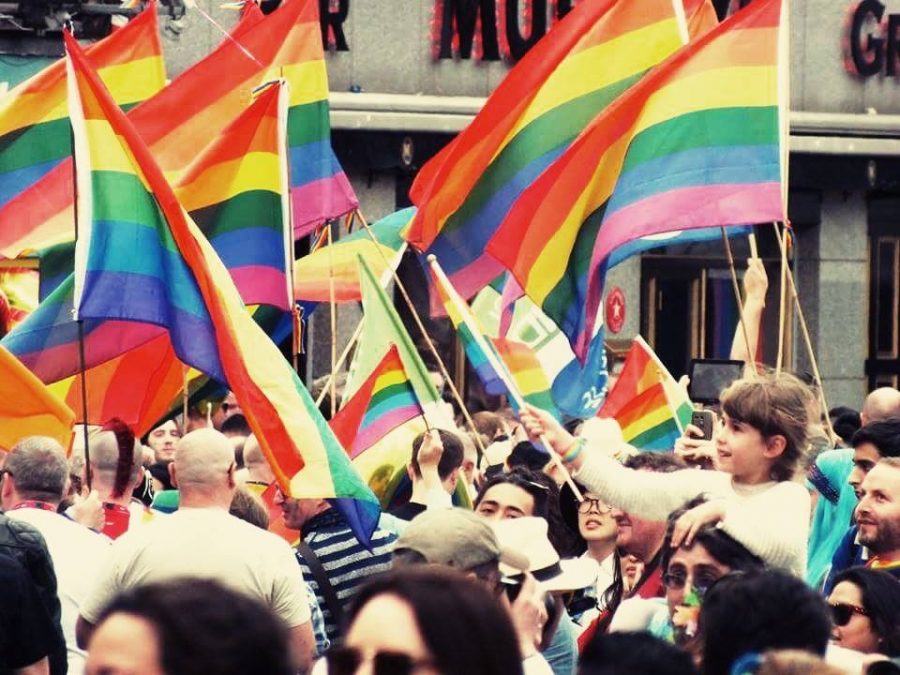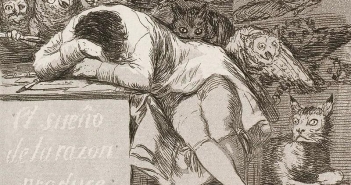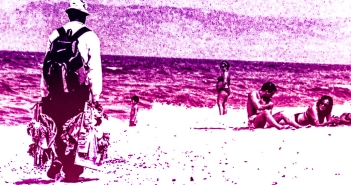I immediately twitch with an almost intolerable discomfort when I hear the words freedom and equality. Alas, they have become quite meaningless.
Let’s take freedom for starters. Where does such a notion come from? Freedom implies choice and yet we are offered so few, in this world or ours.
For example, did you have a say in your birth? No, you didn’t. This singular event, without a doubt the most tumultuous and catastrophic in a whole litany of debacles you call your life – the one which possibly defines you the most – you have had absolutely no say in it.
So, right from the beginning you were forced, without any choice, to take part in the whole abominable exercise called Life. And, when you think further about it, the choices did not grow from thereon in, they only diminished all the more.
Your family, your country, your social background, your people’s history, again, you were not consulted in any of this. Nor in your sex, creed or language, might I add. All of these profoundly important features were thrust upon you.
Look at your body? Listen to your heart beating. Who determines that? And your lungs. Are you in control of them? Is it not that whole horrendous mechanism that houses that thing you call a spirit? Isn’t your body but a vast cell entrapping you in its ghastly prison?
Peter O'Neill reviews a new collection of poems by Mick Corrigan, which he suggests identify an enduring theme of betrayal in Irish culture.https://t.co/g3qVcwgvFZ@broadsheet_ie @BenPantrey @BowesChay @danwadewriter @danieleidiniph1 @KevinHIpoet1967 @MarcSaverio
— CassandraVoices (@VoicesCassandra) April 12, 2022
Grammar of Being
As a language teacher, again not by choice, I call it the Grammar of Being! For, as in language there is very little freedom – if none at all – until the day arrives when you have mastered the extremely complex mechanisms of any language.
Anyone who has learned a foreign language will attest to how difficult this endeavour is; there are grammatical and lexical rules, as well as social rules, conventions and idioms – culture in a word – that you must also be aware of. There is Very little freedom until you have mastered all the systems.
Freedom? Where is the freedom in any of this, I ask you? Will you choose the day that you die? Well yes, only if… Camus spoke of suicide as the ultimate act of freedom, and, on this, he was of course totally correct.
And what about that other word: equality? I am reminded of the Spartan at Thermopylae who turned to his immediate neighbour, upon hearing him utter the word, and laughing at him pointed to the oncoming Persian army and said that one single Spartan was worthy of a thousand of ‘them.’
"Fate drops like a Stone in the water / Troubling the stillness with ripples outward" Peter O'Neill celebrates Dublin scenes in new poems.https://t.co/doP6DEnB4u@danwadewriter @KevinHIpoet1967 @Emmett_Scanlon @looplinefilm #poetry
— CassandraVoices (@VoicesCassandra) November 7, 2022
Jumping forward…
So, what does freedom mean here in twenty first century Ireland, the Republic of Ireland at least? That idea of a country we have.
What does freedom mean to us here? When we think of freedom, for example, what do we see? Do we see a rainbow-coloured flag? Sometimes this appears to be all it represents.
I work in a school, for example, and outside my classroom door (I teach foreign students who are obliged to learn English as a foreign language for their visas) there is a notice board which I instigated. Although originally it was to be a place for student messaging, there is now a lone flyer explaining the origins of the rainbow flag, which we see so prominently all over our towns and streets.
Indeed, on Culture Night one inevitably sees a veritable sea of multi-coloured rainbow flags, which come from the government-backed Arts Council. Indeed, when you attend any Arts Council-funded event these days, you come to expect the usual plethora of rainbow colours everywhere you go.
So, I hear you ask. What is the problem with this? Are you asking: “Is he one of them – a homophobe?”
On the contrary, as a writer and artist, I have been profoundly influenced by gay-lesbian- trans and bisexual writers and artists since I was an adolescent: William Burroughs, Jean Genet, John Cocteau, Marcel Proust, Lee Miller, Mae West… the list just goes on and on.
So, on this point, I can assure you, I am not against the LGBT community at all. What I am against, and profoundly so as an artist, is the notion of equality that the Arts Councils, and arts groups in general, would appear to be promoting. I am against this for an important reason that is often lost sight of.
Dublin, that old whore, with her piss -stained pavements / Abruptly transforms into a woman of a certain station. Peter O'Neill makes poetry out of the everydayhttps://t.co/i64mhNGR0y@KevinHIpoet1967 @corourke91 @danwadewriter @IlsaCarter1 @BowesChay
Image@ @danieleidiniph1— CassandraVoices (@VoicesCassandra) September 15, 2022
Open Mics
A few days ago, I was on my way to catch a train when I bumped into an acquaintance. The man was familiar to me through certain public readings – open mics as they are called – as I sometimes had the occasion to join him at them.
The open mics that we both attended at the time promoted very strongly the ideas that I am now fundamentally opposed to, so much so that I have now adopted an anti-open mic policy.
This notion is that all writers and artists (just like all lesbians, gays, bisexuals and transexuals – who decides who goes first?) are equal and so should have the same time frame allotted to them at a public reading (usually a mere four minutes).
This means that a complete novice, who wouldn’t know a stanza from a portmanteau, is given the very same amount of respect as, say, a translator and poet who has had multiple books published and has been working very diligently on their art for over thirty years.
A professional musician asked me the other day if I had been attending any open mics recently. In return I asked when was the last time that he had shared a stage with a bunch of amateur musicians for free?
He suddenly smiled and about-tracked, finally realising what it was he had been asking me. And yet open mics are now all-pervading.
Where once they were regarded as a rather harmless exercises promoting ideas of inclusivity, now they are the absolute norm. Yet they are only considered normal in the world poetry.
Why is this? My friend, the musician, understood very well my situation. He knows me as a semi-professional writer and translator that is expected to share the stage with any newcomer at any number of so-called arts festivals.
I attended one recently for which I was very generously compensated. It had been funded by the Arts Council, but when I looked at the website after the event, to see what kind of photographs had been taken etc., there were simply thousands of photos of so called ‘poets’, meaning the actual poets who had attended were lost in an absolute avalanche of amateurism.
Peter O'Neill draws on personal experiences of love, loss and power as he considers the significance of Giambattista Vico in the work of Beckett and Joyce.https://t.co/7mpL9RDGU5@broadsheet_ie @IlsaCarter1 @danwadewriter @Elzobub @KevinHIpoet1967 @itsmybike @Bate_Kevin
— CassandraVoices (@VoicesCassandra) September 23, 2021
Beckett of Joyce
My friend at the train station also asked me what I had been up to of late. I mentioned that I was going down to Cork to present a paper at a Beckett symposium, but that I would be deliberately present on James Joyce, just to annoy the Beckett aficionados.
In response, my acquaintance looked at me with a kind triumph in his eyes – a look he could never have had twenty years ago – and declared that his opinion on James Joyce was just as valid as anyone else’s.
He made this boast with such firm conviction that I assume he actually believed what he was saying. I remained mute.
What could I say? After all, both of us knew he had never read Ulysses not to mention Finnegans Wake. As I watched my acquaintance shuffle on – with some bravado I might add – I couldn’t help, there but for the grace of God, go I!
Featured Image: Marina Azzaro




